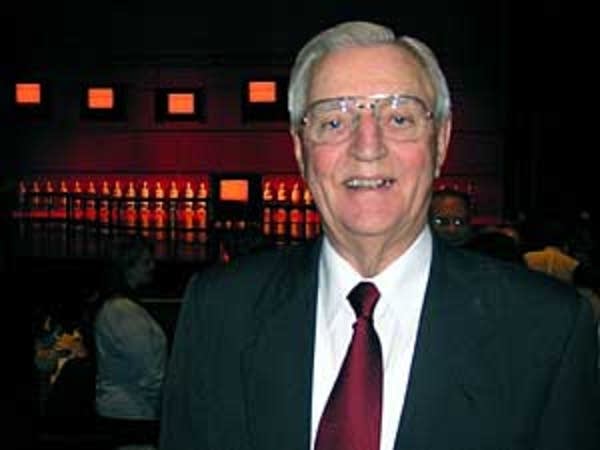New movie 'Fritz' tells the Mondale story
Go Deeper.
Create an account or log in to save stories.
Like this?
Thanks for liking this story! We have added it to a list of your favorite stories.

While "Fritz" director Melody Gilbert says it's not a political movie, she says it comes at a time when people are discussing the role of the vice president.
Gilbert says "Fritz" got started when staff from the Humphrey Institute at the University of Minnesota approached her about documenting a special class on the vice presidency.

The class would be taught by former Vice President Walter Mondale, using his newly released White House papers.
Gilbert says as she filmed she began listening, and realized there was much more to be done with the Mondale story.
Turn Up Your Support
MPR News helps you turn down the noise and build shared understanding. Turn up your support for this public resource and keep trusted journalism accessible to all.
"He is so passionate and he's so genuine, he's the kind of politician that we don't hear much these days," Gilbert said. "I thought I would start looking into his life a little bit more, and if he was interested, I would move forward and make a film about him. And he wasn't interested. He didn't want to do it."
Mondale said he had been in the spotlight enough. But Gilbert kept pushing. When Mondale's children got involved, he came around.
Gilbert says Mondale is reluctant to toot his own horn. The film tells how he argued against having his name on the syllabus for the class on the vice presidency, until it was pointed out it was essential information for students.

Gilbert says Mondale's reserve evaporated as he examined the papers with his students.
"What I really enjoyed was watching his reaction to seeing those papers," she said. "He was so excited about those papers, and it jogged his memory about things he had forgotten about. And to be able to go over those papers with students who were interested in what he did was a big thrill for him."
Gilbert says it was an education for her and the students, as Mondale's involvement in the issues of the day became clear.
"You see him being sent, not just as a representative of Jimmy Carter, but essentially to be Jimmy Carter, and you really see it in these papers, it's quite interesting," Gilbert said. "China, South Africa, Camp David Accords, all these places where the vice president had a very important role that people didn't know about before, and I think will learn about through these papers."
"He was so excited about those papers, and it jogged his memory about things he had forgotten about."
The film also makes use of archival footage of Mondale's career, and interviews with state and national officials. Many, like former Gov. Arne Carlson, stress Mondale's dedication to public service.
"I look upon Walter Mondale as the individual who defines for people today what public service is about," Carlson said in the film. "And that is putting the well-being of others well ahead of any ambitions or any thoughts about what is good for you."
In addition, the film includes President Jimmy Carter and former Vice President Al Gore, who says Mondale redefined the role of that office.
There is also Geraldine Ferraro, who was Mondale's pick for vice presidential candidate when he made his own run for president in 1984. It was the first time a woman ran as a major party candidate on the presidential ticket.
"Fritz had a history of tearing down barriers," Ferraro said. "He chose me to break down another barrier."
The documentary will open the Minnesota Historical Society's Moving Pictures Festival. The "Fritz" premiere is already sold out, and tickets for a second screening Friday are going fast.

Other screenings are likely in coming weeks, and Twin Cities public television will air "Fritz" in mid-December.
The Minnesota Historical Society's Randal Dietrich says "Fritz" is a perfect fit for the festival. It's an ongoing event showcasing movies about what's become known as Minnesota's Greatest Generation, people who grew up in the Depression and then lived through World War II.
The festival will screen more than 50 short films submitted this year. Dietrich says it's an opportunity to learn more about the remarkable people in the community around us.
"I think it allows people to identify with some people like Walter Mondale," Dietrich said. "And at the same time, they can then go and think about their own family members -- their grandparents, grandmother, grandfather -- who were born during the same time, and lived through the same things, and see themselves in these movies."
The Moving Pictures short films will be screened at the Riverview Theater and the Mall of America on Sunday. Dietrich says they will then be used as the basis of an exhibit set to open at the History Center on Memorial Day, 2009.



